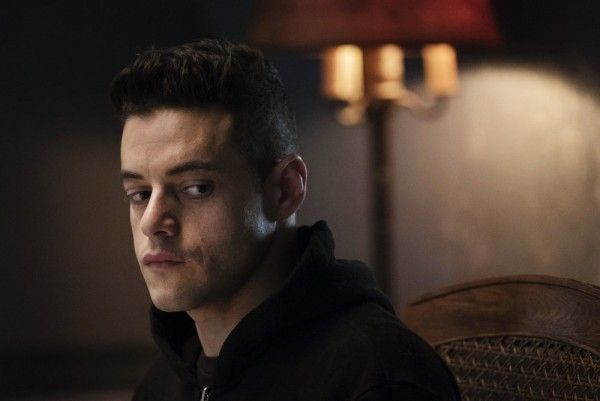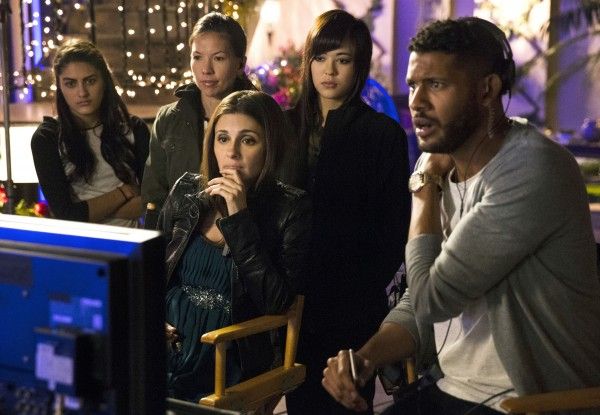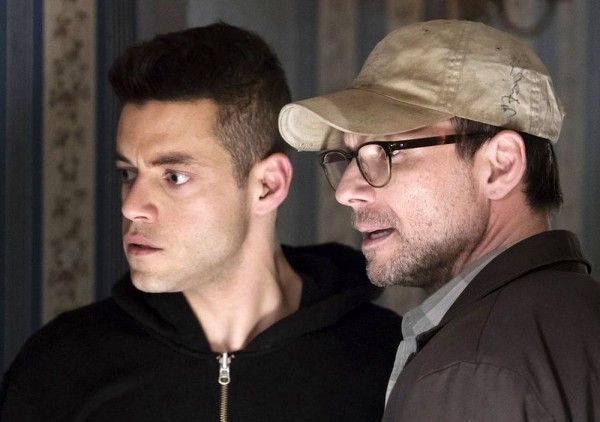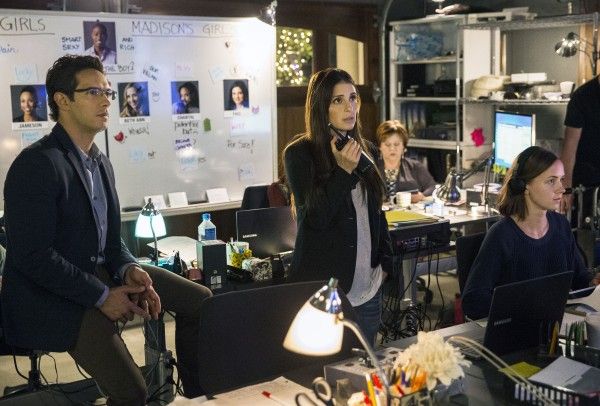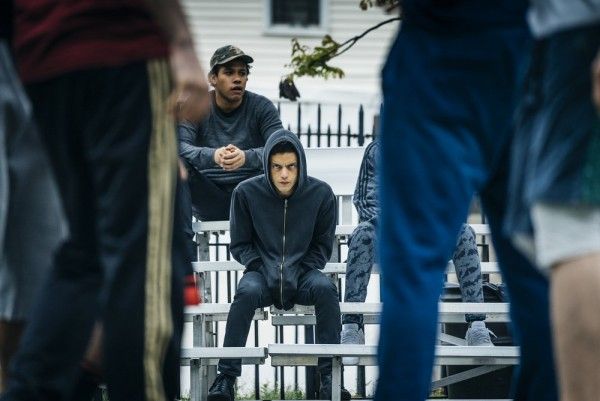There’s a stat that goes around about how you have less of a chance of getting a TV show on the air than you do winning the lottery. And once the show goes to pilot, or gets approved for more, you still might not make it more than a few episodes. The truly lucky get one season. The rarest of all get a second. But then there’s a new problem: you have the time, you have the backing of the network, but your incredible idea that launched the series above the noise of 400 other scripted series now needs new ideas, better ideas, and a plan for longevity.
This is where most series fail. Some might coast for a few seasons, but ultimately, unless you have a rock-solid procedural format, elongating narrative storytelling to 22 episodes a year (or even just 13) for three, four, five years is often—though it’s important to say not always—an exercise in diminishing returns.
And yet, we hold out hope, especially when series come about that truly break the mold. Most often they also have a strong-willed showrunnner or creator completely committed to their vision. Last year, two great summer series (summer being that time of year when networks can dump unproven series that maybe can’t compete in the fall) came on the scene with unexpected hooks from unexpected networks. Mr. Robot, with its gorgeous styling and narrative complexity, was one that singlehandedly made us look to USA and think, “Is this where the next great dramas are coming from? Is this the new FX?” I named it the best drama of 2015, and it was universally praised throughout the year … until Season 2.
Season 2 also happens to be when creator Sam Esmail took over writing (with a staff) and directing every episode, becoming a true TV auteur. So is Mr. Robot’s glacial Season 2 pacing and over-reliance on Elliot’s unreliable ramblings (with almost none of the hacking that earned it praise) all Esmail’s fault? Not entirely. But what a good idea and a good show often need to become great is restraint and creative pushback, someone to say “no” so that you can find a better way to make them want to say yes.
Take UnReal as another example. Like Mr. Robot, UnReal’s debut on Lifetime last summer caught critics and viewers off guard. Lifetime is bringing us a deep, dark, edgy satire of reality dating bastion The Bachelor, written by an insider? Incredible! The series, again like Mr. Robot, was anchored by a fantastic cast (this one mostly female), and while the show was sometimes over-the-top, that was part of the reality show culture it was not just lampooning, but excoriating. For a year, the UnReal faithful heralded its virtues and convinced friends and family to give it a chance … until Season 2.
Lifetime’s series are often defined as being frothy and lightweight, hingeing on plot twists and reveals instead of character development. In Season 2, this is what UnReal became. Despite the importance within the show and outside of it over having the first black “suitor,” the show buried that significance under piles of soapy drama and often incomprehensible plotting. It blew through a season’s worth of storylines in a single episode, then repeated that mistake again and again, without giving its great characters time to develop further, stripping major moments late in the season of their emotional resonance.
In Season 1, UnReal was run — very contentiously — by TV veteran Marti Noxon and former Bachelor insider Sarah Gertrude Shapiro. In Season 2, Noxon left, giving Shapiro full run of the show. But it is abundantly clear that Shapiro needed Noxon giving her pushback to help shape the show, slow it down, and make it truly great.
The best recent example of the TV auteur model going south is True Detective. Season 1 was a fantastically cast, gorgeously directed, and engrossingly executed work from Nic Pizzolatto, and directed in full (a rarity on TV) by Cary Fukunaga. There were whisperings from the start that the two did not share the same vision for the story and how it should be told, but look at what that created. In Season 2, Fukunaga departed, and, well, we know how that went. Pizzolatto remained at the helm, and Season 2 (while not awful), was pretty awful compared to Season 1 and the expectations it set. Since then, the former HBO president of programming apologized for rushing the season, and more True Detective remains in doubt.
Yet can you blame the network executives? They get a surprise hit, so they capitulate more and more to the whims of the showrunner. Look at FX with Kurt Sutter and Sons of Anarchy. What started as an ambitious show that was an emotional, violent, but darkly humorous story about a motorcycle gang turned into a bloated indulgence, filled with self-importance. With the latter seasons hampered by 90-minute episodes and full-song montages, Sons of Anarchy became the ultimate example at the time of a showrunner not being told “no.” (And it also led to that mess The Bastard Executioner).
As for Mr. Robot and UnReal, are their new seasons terrible? Objectively speaking, no. Robot still has a lot of style and, occasionally, something worthwhile to say despite its wandering narrative and lack of urgency, and UnReal has become escapist entertainment instead of the kind of show that demanded we sit up and take notice. So the root of our disappointment is not that it’s terrible TV ... it’s just not what we signed up for, got invested it, and were so excited to see return.
TV shows used to be built almost exclusively on procedural aspects, and most of the broadcast networks’ top shows have stuck with that formula. Over the last 10 years, we’ve seen a surge of original content from just about everybody — new premium channels, streaming providers, the cable channels you didn’t even know you had — and with it, a flood of out-of-the-box television. Because of that, maybe it’s not as hard to get a show on the air now as it once was, but getting that show noticed is the new problem. And beyond that, there's the major problem of keeping viewer attention by coming back year after year with great stories boldly told.
Perhaps the lesson to learn is that in this world of expansion (more original content, more freedom, more viewing platforms) the key word is restraint. Or alternatively, just “no.” It’s a critically delicate balance between too much oversight and too many network notes stripping a series of its creativity and unique flavor versus letting a showrunner run wild, even when these showrunners are full of great ideas. We’re in an era where TV viewers actually know the names of showrunners and follow them as much as (or moreso) that the series’ leads. Great power, great responsibility, and all of that. But mostly, hopefully, from that will come a future balance between the idea and the practical execution that also leads to more great TV.


